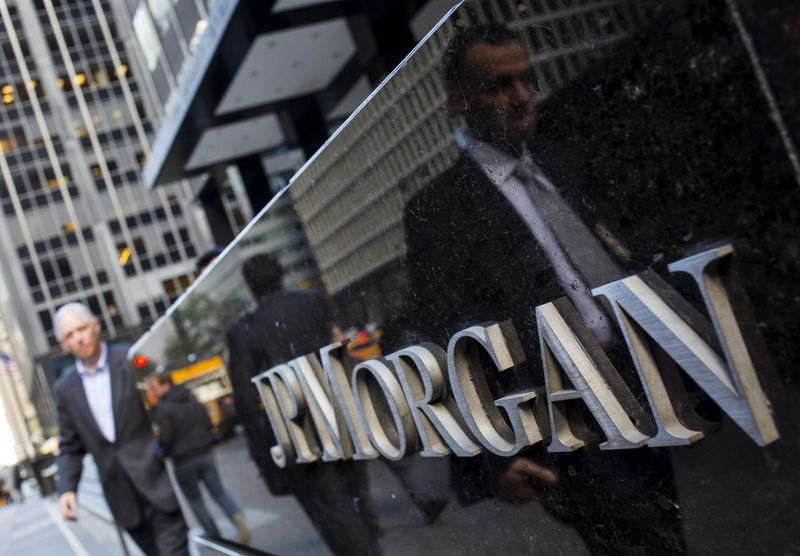(Bloomberg) -- JPMorgan (NYSE:JPM) Asset Management is cautioning investors against rushing to buy equities because the market remains susceptible to negative developments in the coronavirus crisis.
“I’m not yet confident in advocating overweight risk assets positions because you’re vulnerable in that scenario to a deterioration of the news on the medical front,” said Hugh Gimber, a global market strategist at JPMorgan Asset Management, in a phone interview. “The policy measures have helped but they’re not on their own enough for us to call a definitive bottom in this market.”
While global equities rallied last week and on Monday amid optimism that fiscal and monetary support measures can limit the fallout from the pandemic, the situation around the virus remains critical and companies are continuing to slash their earnings outlooks. The full extent of damage to corporate profits remains unknown, making it dangerous to turn risk-on, Gimber said.
The strategist at the $1.9 trillion asset manager is closely monitoring the strength of the labor market in the U.S. and Europe for signs of how quickly the economies will be able to rebound once lockdown measures are lifted. This data can provide a signal to resume buying equities, he said.
During these challenging times, Gimber recommends focusing on quality companies with strong balance sheets and low leverage both in stocks and bonds.
“You want to be investing in companies that have the balance sheet flexibility to be able to handle this short-term hit to activity and come out on the other side the strongest,” he said.
In the bond market, he favors government debt with shorter duration over debt with a longer-term maturity as he sees the gains there as more limited. He’s particularly keen on investment-grade bonds that benefit from the U.S. Federal Reserve’s and other central banks’ purchases and support measures.
He’s much more cautious on high-yield debt issued by companies with weaker balance sheets. “The central banks will help solve the liquidity challenge for corporates, but they can’t help to solve the solvency issue for those more under-pressure names,” Gimber said.
Still, the current level of high-yield bond spreads offers a good entry opportunity for those looking to invest for one or two years because in the short-term, volatility can be significant, he said.
©2020 Bloomberg L.P.
